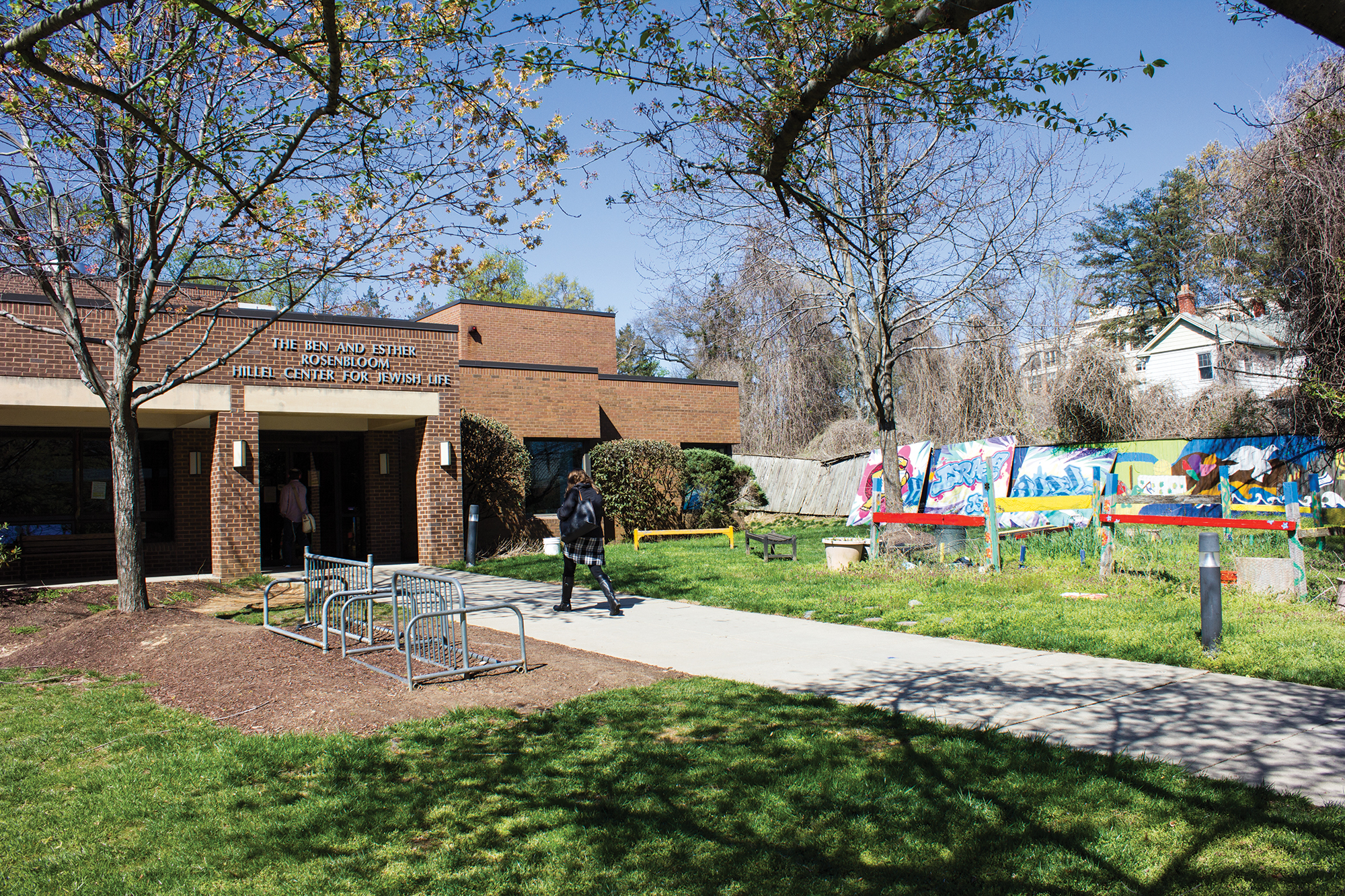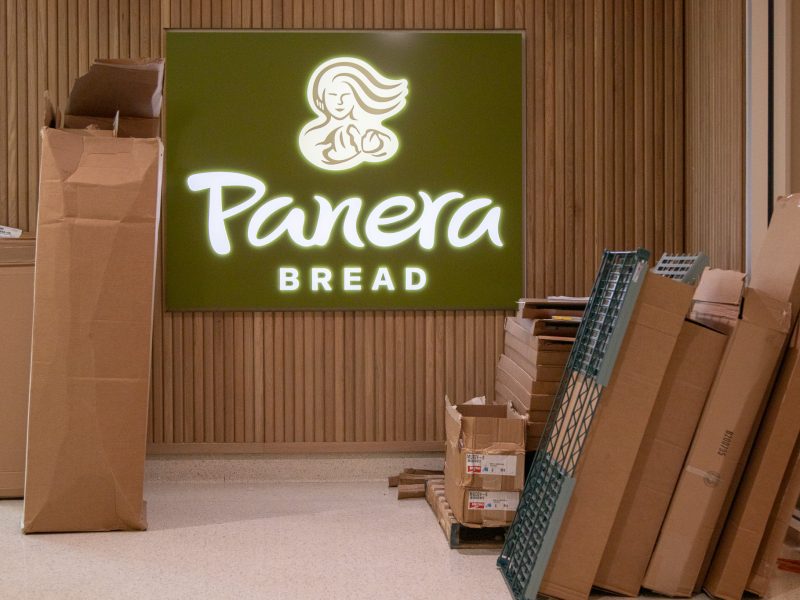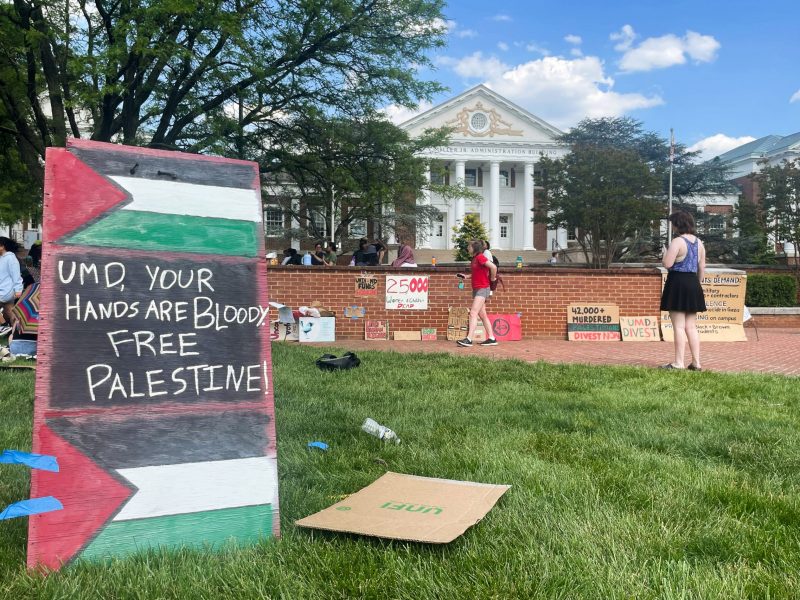For some Jewish students at the University of Maryland, recent bomb threats made toward Jewish community centers and schools across the country do not come as a surprise.
Between Jan. 1 and Feb. 27 this year, 100 bomb threats were called into Jewish community centers and day schools in 33 states and two Canadian provinces, according to the Jewish Community Center Association of North America.
Maiya Chard-Yaron, assistant director of Hillel, the Jewish student center, said this university has a strong Jewish community and support from the larger campus community to promote diversity and security for students.
“We have a close relationship with campus administration and campus police, and we are very fortunate to be in partnership with them to help make sure our campus remains a safe place for the Jewish community and also for the student community at large,” Chard-Yaron said.
“Continuing to live our active Jewish life on this campus is one of the most important things we can do,” she added.
Sam Fishman, president of this university’s Jewish Student Union, said he knows people who work in Jewish community centers.
“The fact that they have to go through this is atrocious. I wish nobody would have to deal with going to work and having bomb threats,” said Fishman, a senior government and politics major.
[Read more: Maryland Hillel voices support for refugees and immigrants affected by Trump’s travel ban]
Fishman said JSU plans to work with other Jewish groups on the campus to address the anti-Semitic threats and acts that have been occurring throughout the country. Though JSU hasn’t received any threats, talking about it with other students is the first step in addressing the issue, Fishman said.
“It’s important that we persevere and that we don’t let this harm our already-set agenda or the way we go about things, because then you let them win,” Fishman said.
Marsha Rozenblit, a Jewish history professor, said she doesn’t know how much news organizations covered anti-Semitic threats in the past, but that the Trump administration may be partially responsible for both the recent threats and increased media coverage. The press is covering more racist and anti-Semitic acts because “people are very sensitive to this now,” she said, given that Trump’s election and the rise of his administration has “unleashed a lot of animosity” against minorities.
Although Rozenblit said she doesn’t think President Trump is anti-Semitic, his administration “creates an environment” that can encourage people to commit acts of hate against minority groups in general, not just Jewish people.
“The political climate has unleashed a lot of hostility against Jews, against blacks, against foreigners of all sorts,” Rozenblit said.
Rozenblit added the Trump administration has to do more to combat all types of hatred.
During International Holocaust Remembrance Day on Jan. 27, Trump issued a statement that failed to specifically address the Jewish victims of the Holocaust. On Feb. 21, Trump made a statement condemning the trend of anti-Semitic threats and acts throughout the country.
Critics said Trump waited too long to address the issue, while other Jewish leaders said they appreciated his speaking about anti-Semitism directly. Trump also spoke out against the threats, as well as the shooting of an Indian man in Kansas, in his speech to a joint session of Congress on Feb. 28.
[Read more: UMD Hillel’s Global Justice Shabbat focused on the Syrian refugee crisis]
“Recent threats targeting Jewish community centers and vandalism of Jewish cemeteries, as well as last week’s shooting in Kansas City, remind us that while we may be a nation divided on policies, we are a country that stands united in condemning hate and evil in all its forms,” Trump said in his speech to Congress.
Tamara Soleymani, a freshman government and politics and psychology major said Trump’s statements regarding anti-Semitism left her unsure of where Trump stands on the issue.
“With someone who has KKK supporters, it’s a little confusing that he would then go and make these statements,” Soleymani said. “At the end of the day, he has to show where he really aligns. I think it’s hard from his statements to see what he really believes.”
Soleymani’s Jewish middle school once received a bomb threat. She said often these incidents usually don’t receive thorough coverage by the mainstream media.
“It’s very scary knowing these threats are coming in just because of my religion, but part of it is also normal,” Soleymani said. “For us, it was more shocking that the news covered these bomb threats than that the threats happened, which is a really sad reality for the Jews.”
Yair Lupovitch, a freshman molecular and cell biology major, agreed the media has increased its coverage of anti-Semitic acts.
“I’m not sure why it’s coming up now, but it’s also kind of sad,” Lupovitch said. “This isn’t the first time that [bomb threats at Jewish schools] have happened.”
There were 508 reports of anti-Semetic “harassment, threats and events” in 2015, and 513 of these incidents in 2014 in the U.S., according to a 2016 report by the Anti-Defamation League.
Soleymani said threats against Jewish people have always been very common. Her synagogue at her home in Illinois employs off-duty police every Sabbath to monitor for suspicious people. She added that some of her friends have had anti-Semitic phrases yelled at them while they were walking in College Park.
“There’s always an underlying threat when you’re Jewish,” Soleymani said.



